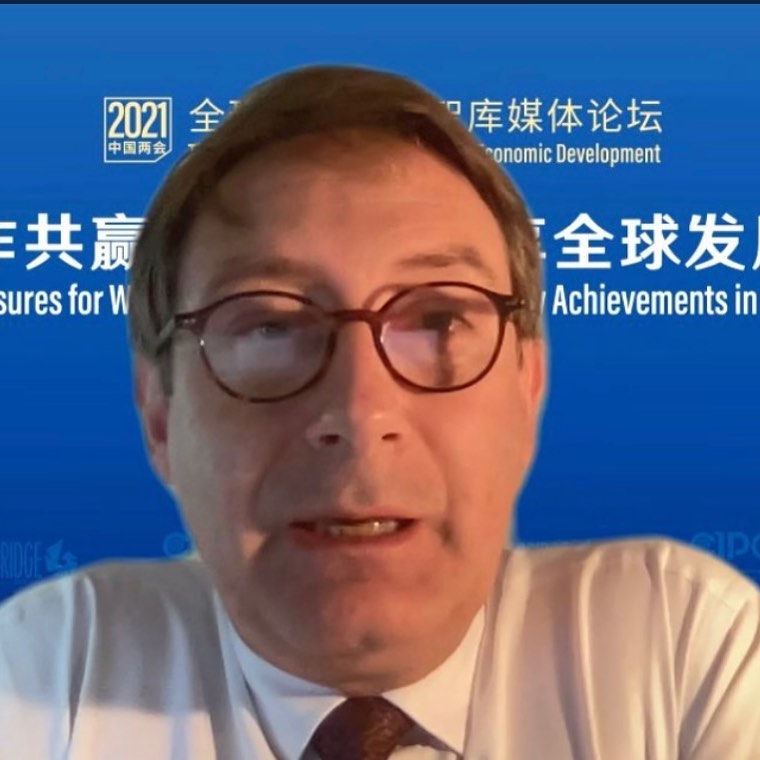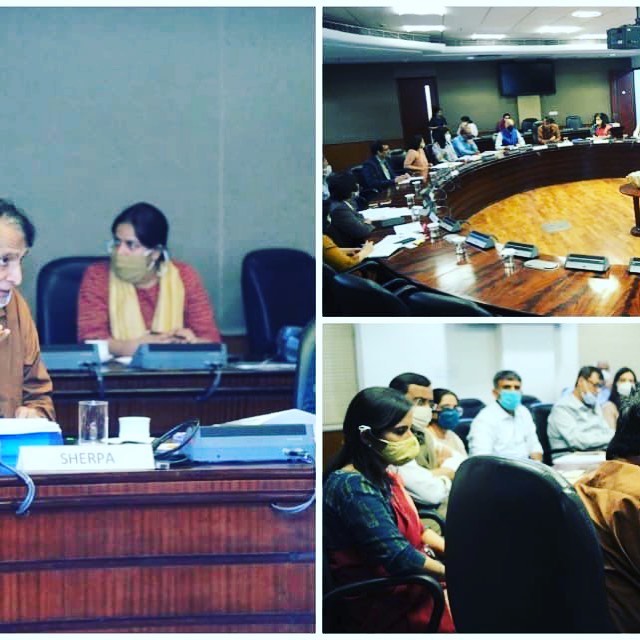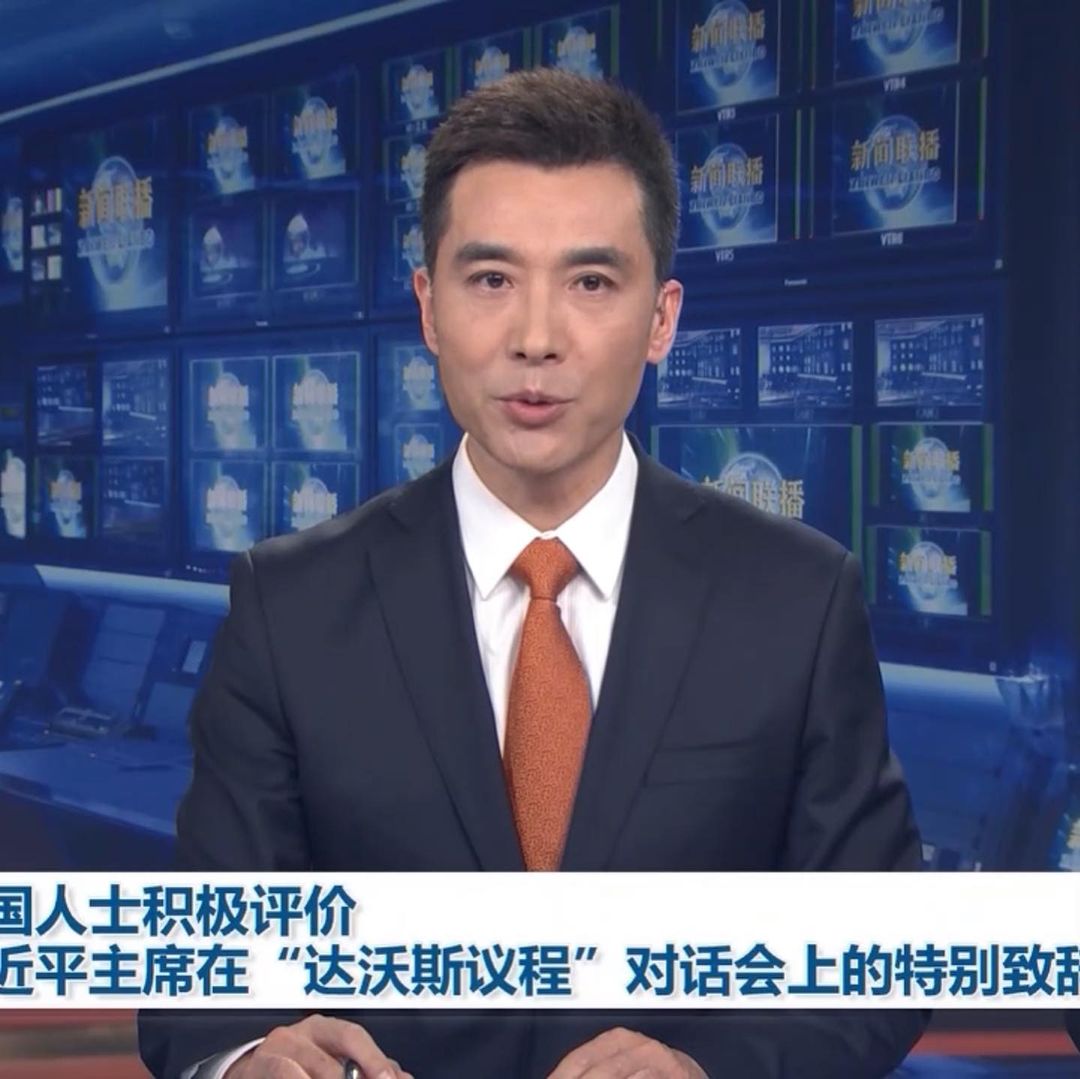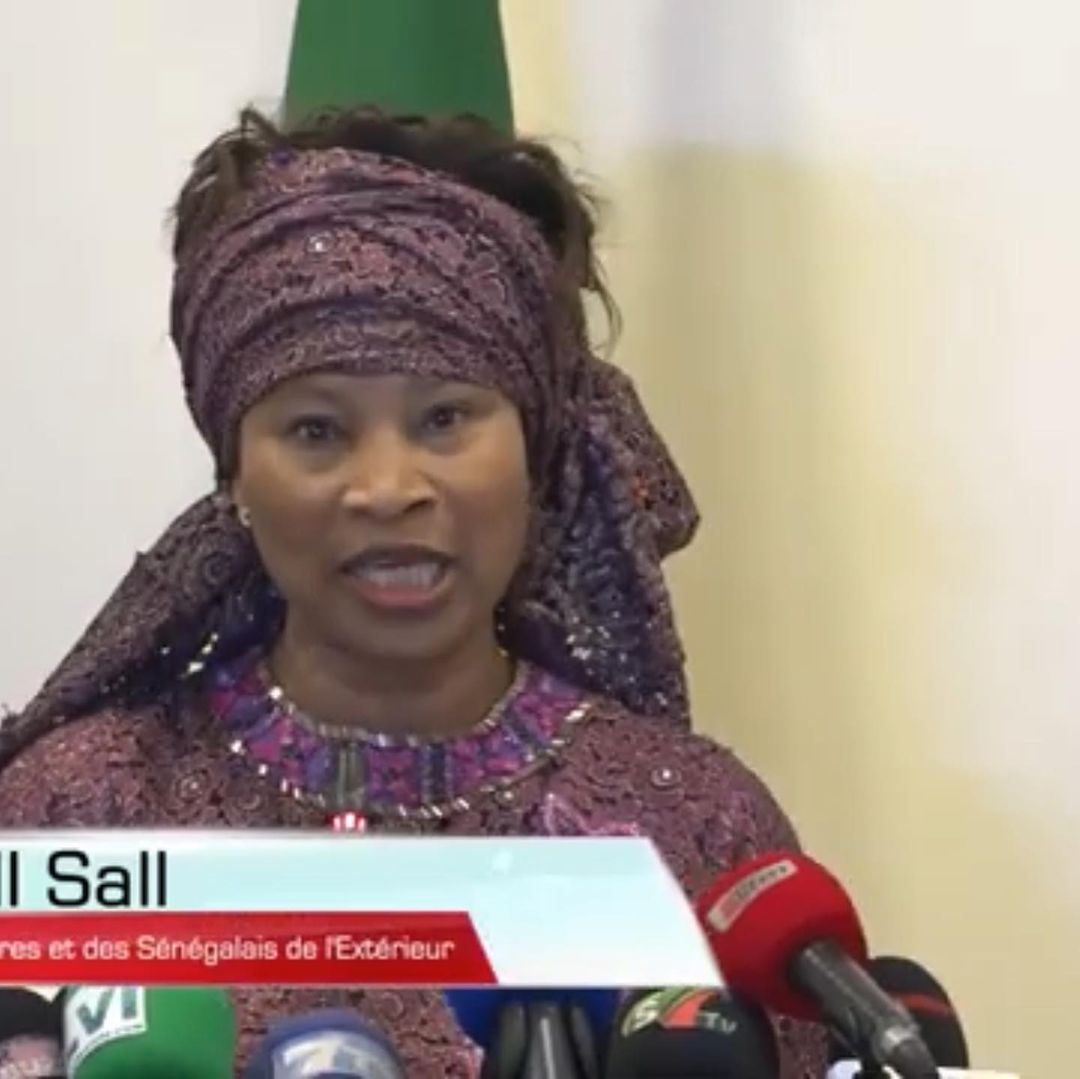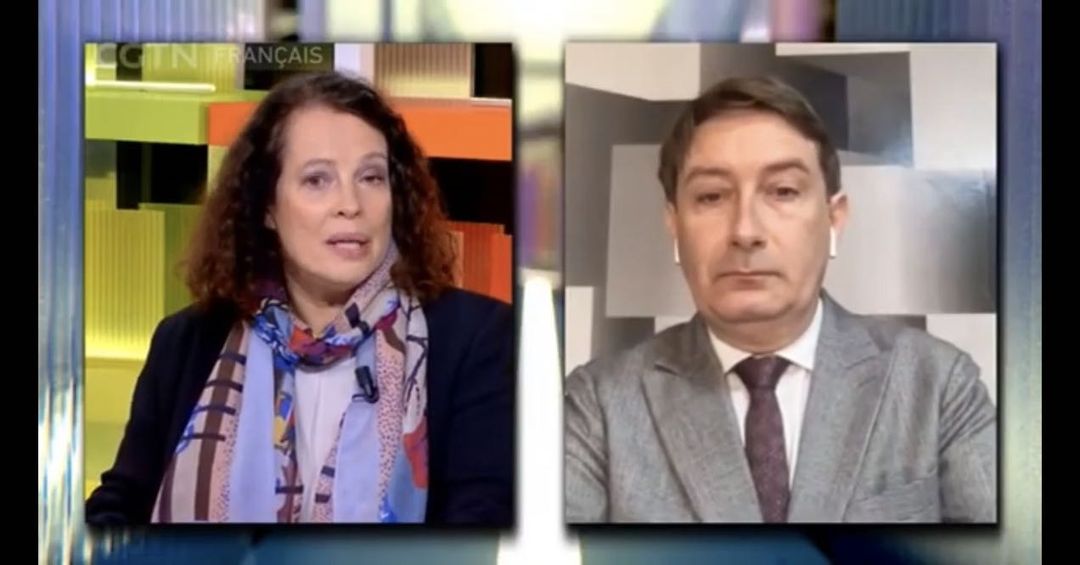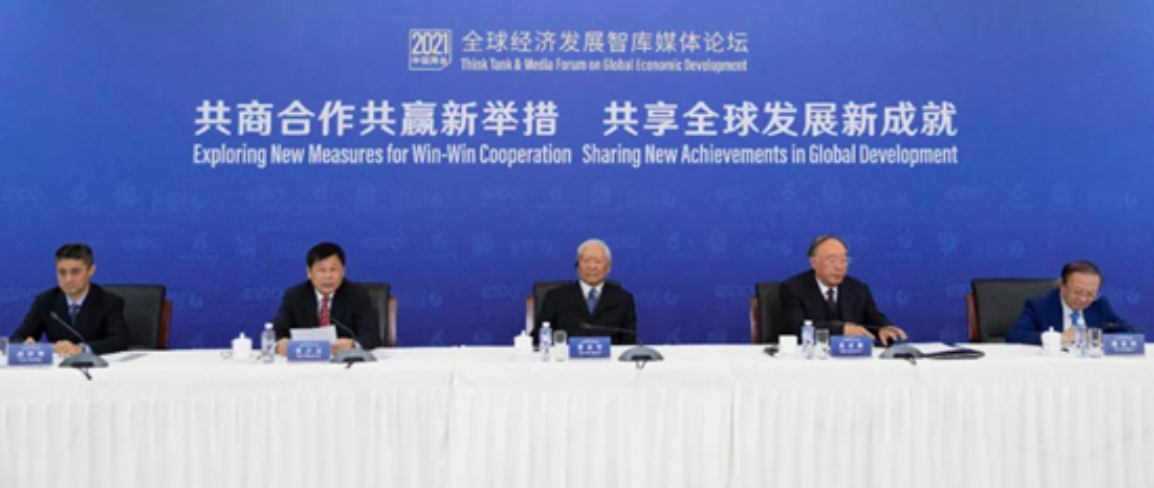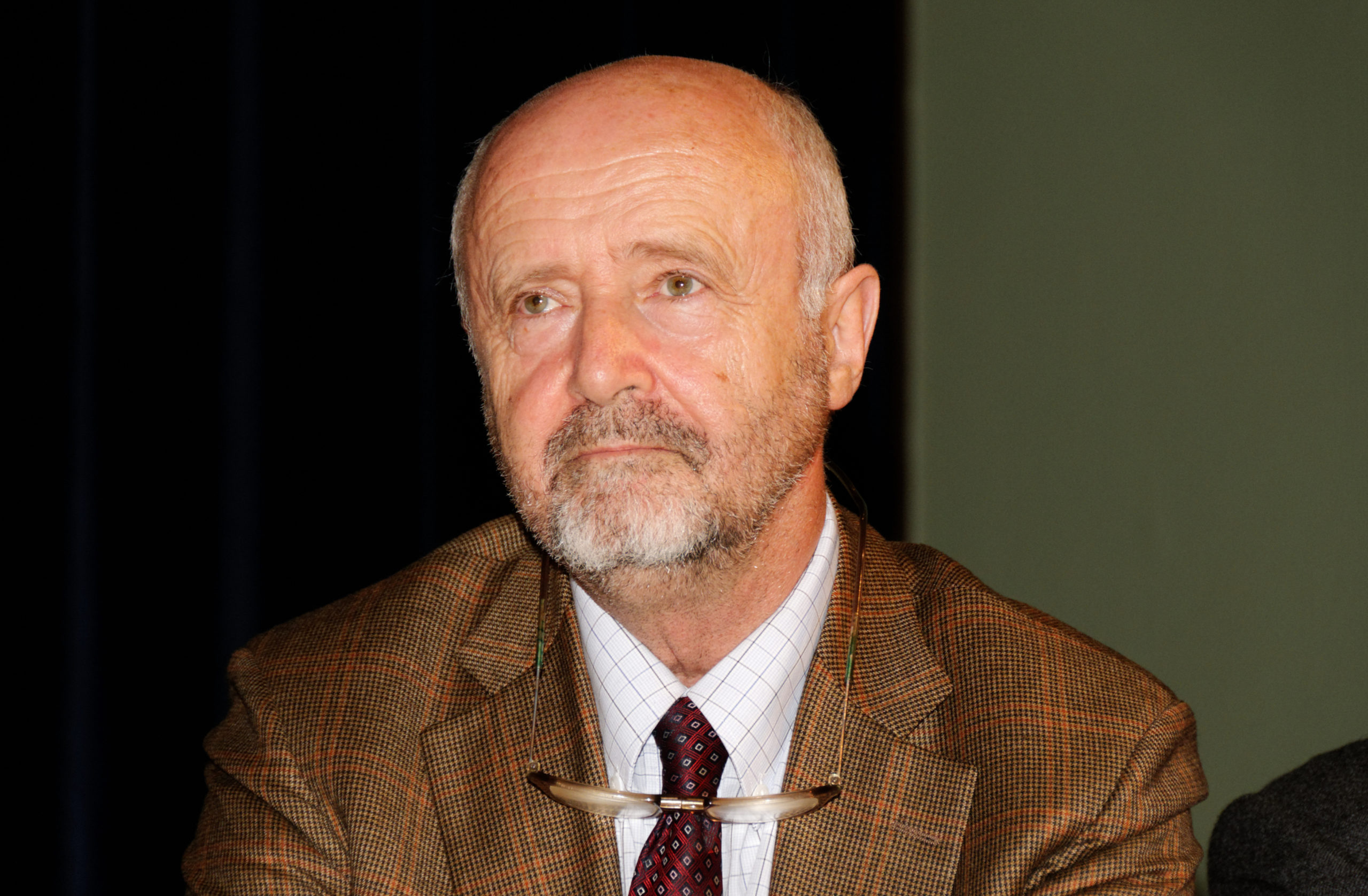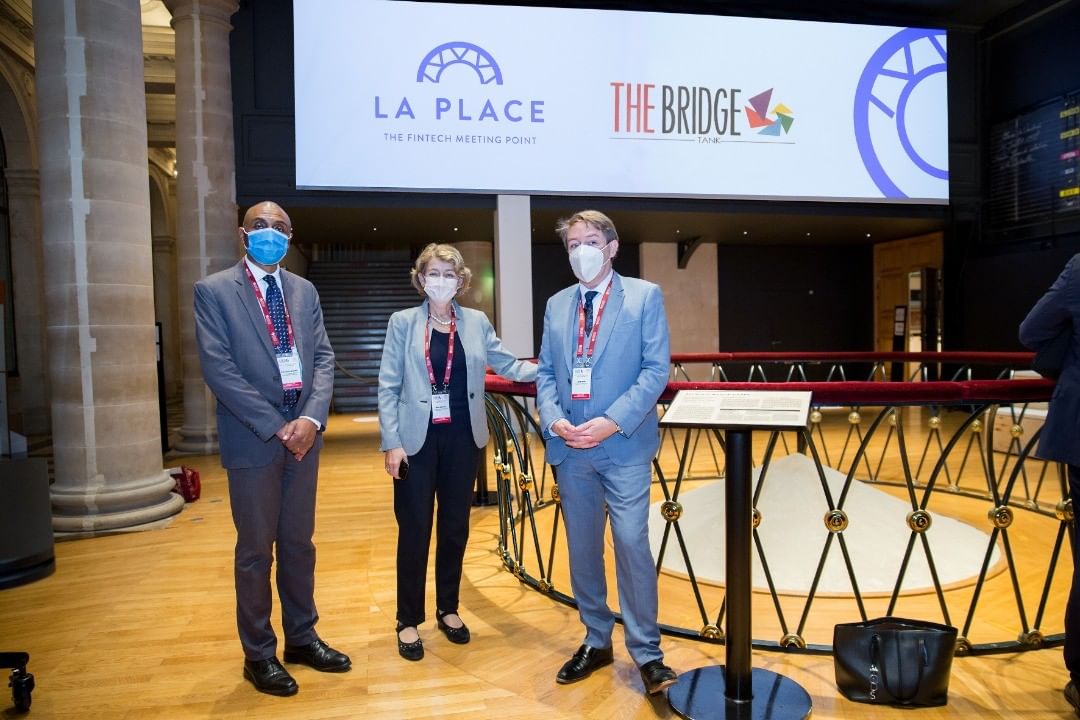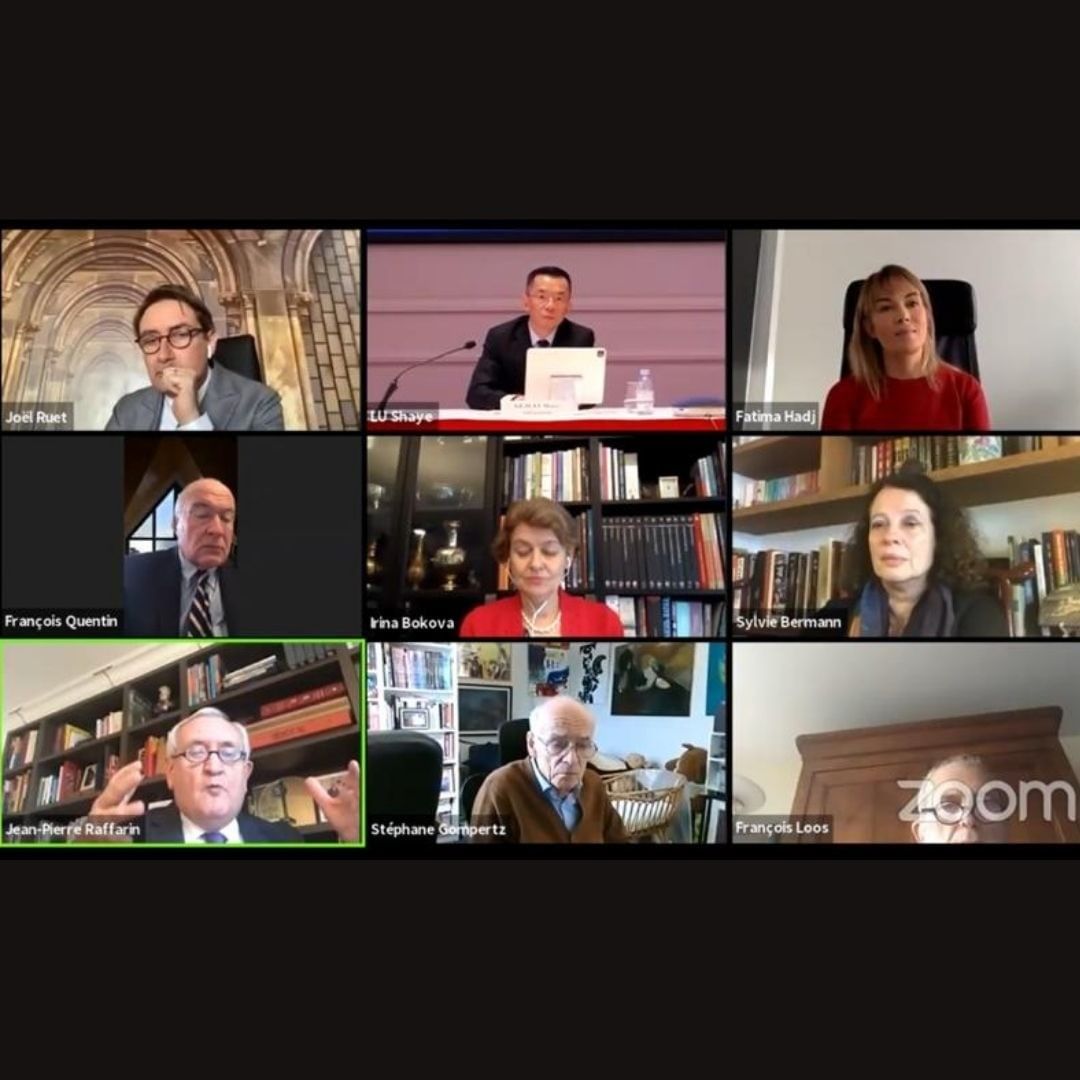Interview with Joël Ruet President of the Bridge Tank on CCTV- China News
Our chairman Joel Ruet was interviewed by CCTV, in China’s widest audience news show, on President XI Jinping’s speech in Davos. He argued that, since 2017’s XI’s historic speech in Davos, China had kept opening and that the future will rest on continued progress in reciprocity for investment for European companies in China and vice versa.
Senegal: The political crisis shaking the country
3 of our Founding Board Members from Senegal were mobilized in the international and national media during the restlessness the country experienced; Aissata Tall-Sall (on Francde 24) Minister of Foreign Affairs, Elhaj Kasse (on TFM) Special Adviser to the President and Mamadou Lamine Diallo ( on TFM), member of the National Assembly and one of the leaders of the democratic opposition.
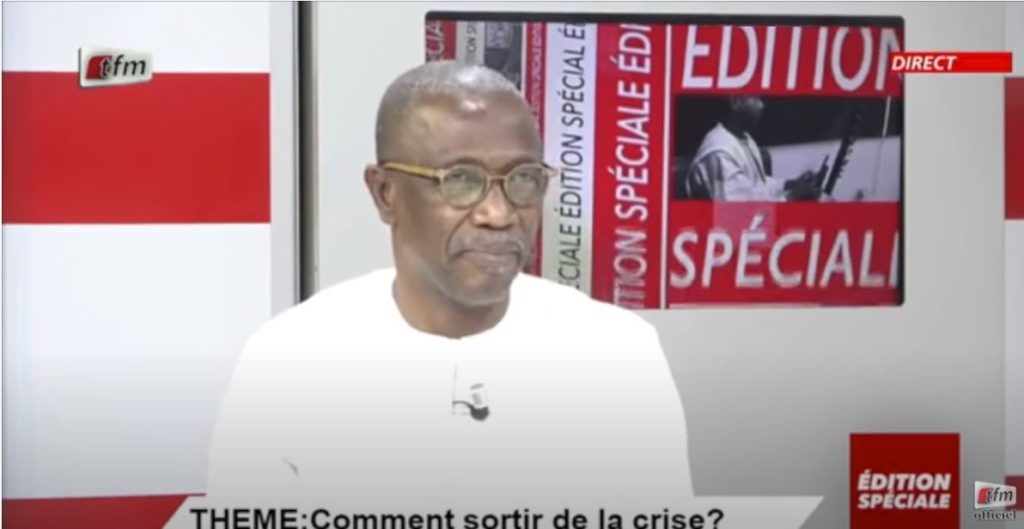
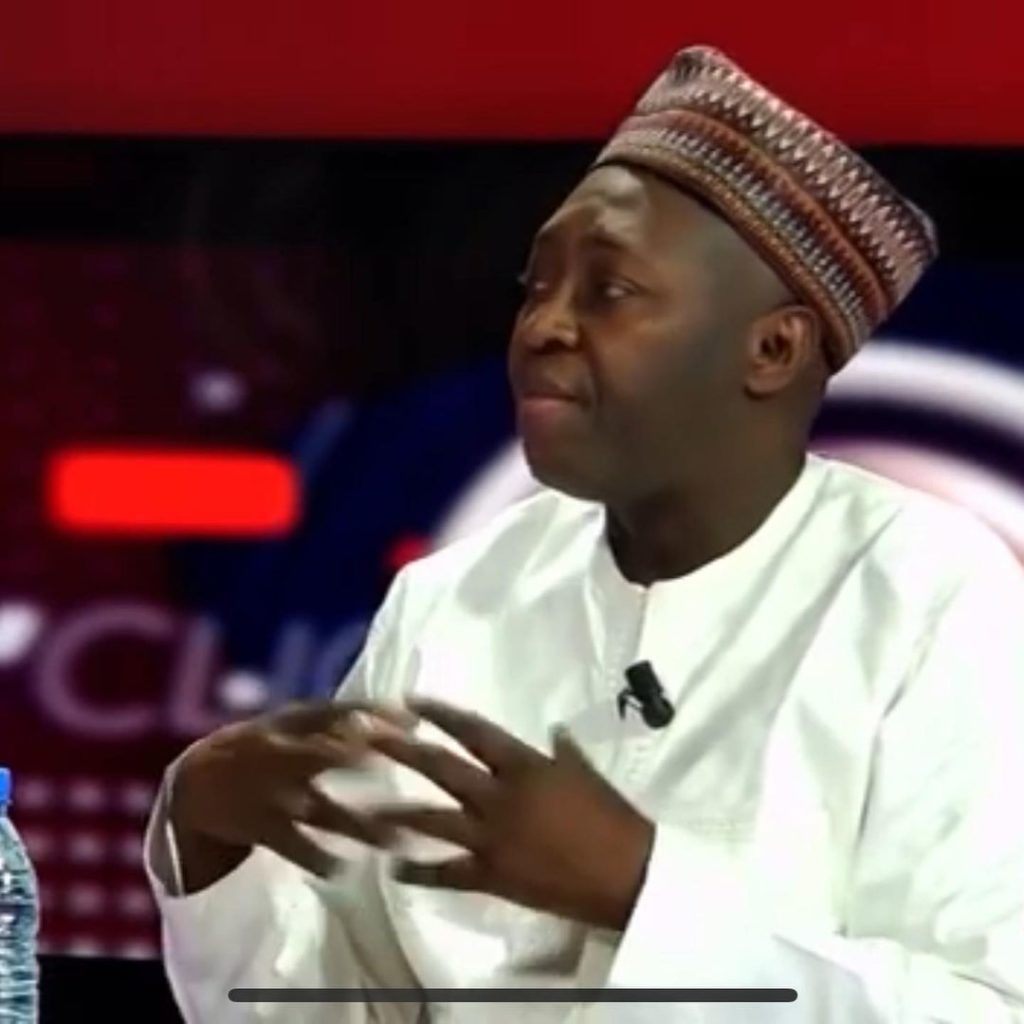
Signing of the investment agreement between the EU and China
Ambassador Sylvie Bermann and our chairman Joel Ruet exchanged notes on Chinese TV on the EU-China investment agreement; noting that it not only concludes 7 years of negotiations but also of seeing on both sides the emergence of a different vision of the world. While many issues remain to be finetuned, ambassador Bermann recalled the agreement answers queries made by the EU and follow a European approach on the economy
China “Two Sessions” : the Bridge Tank co-organizes the Think Tank & Media Forum on Global Economic Development
A Forum on Global Economic Development on the occasion of the Two Sessions in Beijing
Together with its Chinese partners, the China International Publishing Group and the China Institute for Innovation & Development Strategy, as well as the Prospective & Innovation Foundation, the Bridge Tank co-organized on March 8 a hybrid Forum on the sidelines of the Two Sessions.
On this occasion, Joël Ruet spoke alongside Wei Jianguo, former vice-minister of Commerce in China and vice-chairman of the China Center for International Economic Exchanges, Cai Jiming, deputy at the People’s National Assembly and director of the Central Committee of the China Association for Promoting Democracy, and Zhang Yuyan, member of the 13th National Committee of the Chinese People’s Political Consultative Conference and director of the Institute of World Economics and Politics.
Jean-Pierre Raffarin, former Prime Minister of France, opened this webinar alongside four Chinese vice-ministers and the deputy speaker of the House of Representative of Argentina. For almost three hours, representatives of more than ten countries, ranging from Russia to India, from Brazil to South Africa, explored new avenues of thoughts, in particular in favor of multilateral cooperation, global economic recovery supported by innovation and reform of global economic governance. The role of international think tanks in building platforms for dialogue was highlighted, and presented as an essential strength in building a community on a humanity scale.
Chinese media articles China Today, China.org, China Institute for Innovation and Development Strategy covered this event in particular.
Opening of the Forum by Jean-Pierre Raffarin: against the temptation of isolationism, an international cooperation based on innovation
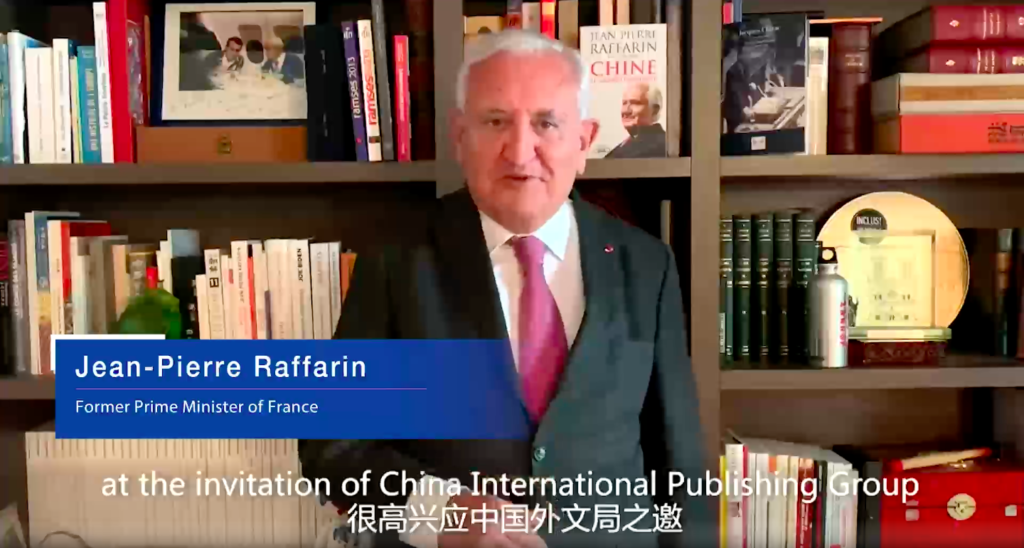
In his remarks, the former French Prime Minister said that sharing of experiences and mutual understanding were essential to achieve peaceful development, a common goal for all countries. As a global crisis exacerbates the need for a coordinated response to global challenges, he stressed the dangers of a temptation to unilateralism and protectionism. Emphasizing the role of innovation, he argued that each country should actively conduct international cooperation while safeguarding its own sovereignty. He mentioned in particular the fight against climate change, referring to the joint efforts of France and China, a strong signal in favor of a global consensus for green development.
From crisis to opportunity for renewal, according to Chinese speakers Wei Jianguo, Zhang Yuyan and Cai Jiming
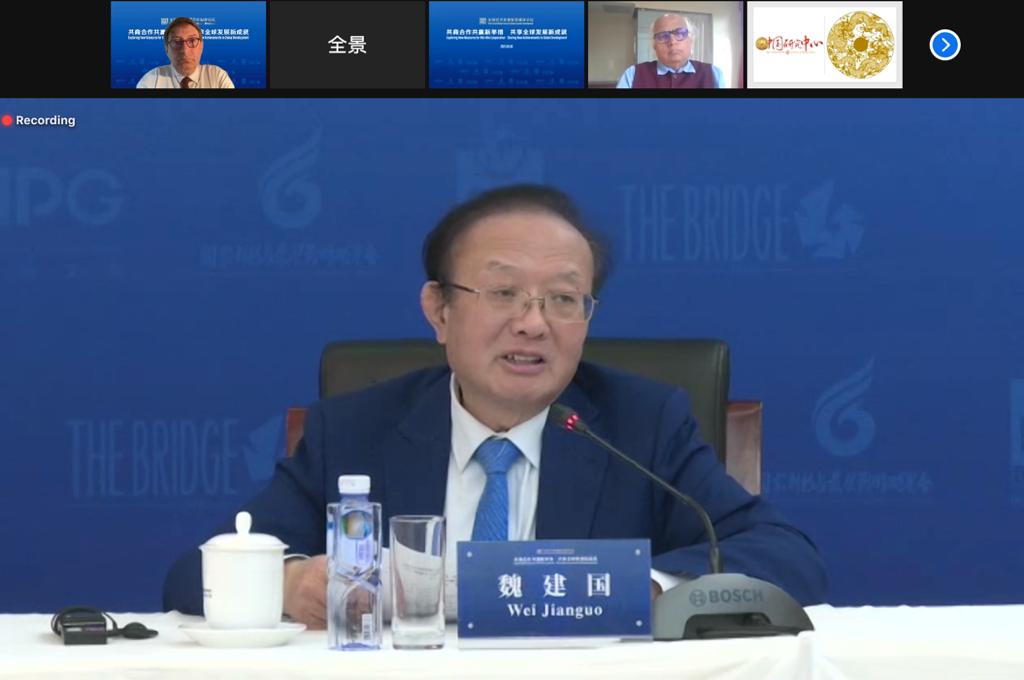
Former vice-minister of Commerce Wei Jianguo said China’s “dual circulation”, a pillar of the 14th Five-Year Plan launched at the same time, will bring new opportunities for global economic development. According to him, beyond the crisis it is going through, the world is entering a new era of globalization, where China must play a crucial role.
But experts have set it against a less optimistic scenario, warning of current systemic risks threatening the global economy, such as inflation, the symptoms of which – sharply rising commodity prices – are already visible. Inflation and climate change therefore emerged as two challenges of common interest to be tackled together.
Zhang Yuyan called for renewed international cooperation, which involves working together on the issue of global governance. Indeed, discussions remain to be conducted, and this responsibility falls to the great world powers, which must find the right balance between strategic autonomy and common interests.
Cai Jiming emphasized the importance of building a fair and sustainable world trading system, based on the notion of comparative interest in the international division of labor, firmly opposing isolationist tendencies that threaten the balance of world trade.
China’s commitment in Global Security and Sino-European Cooperation : Joël Ruet’s Intervention
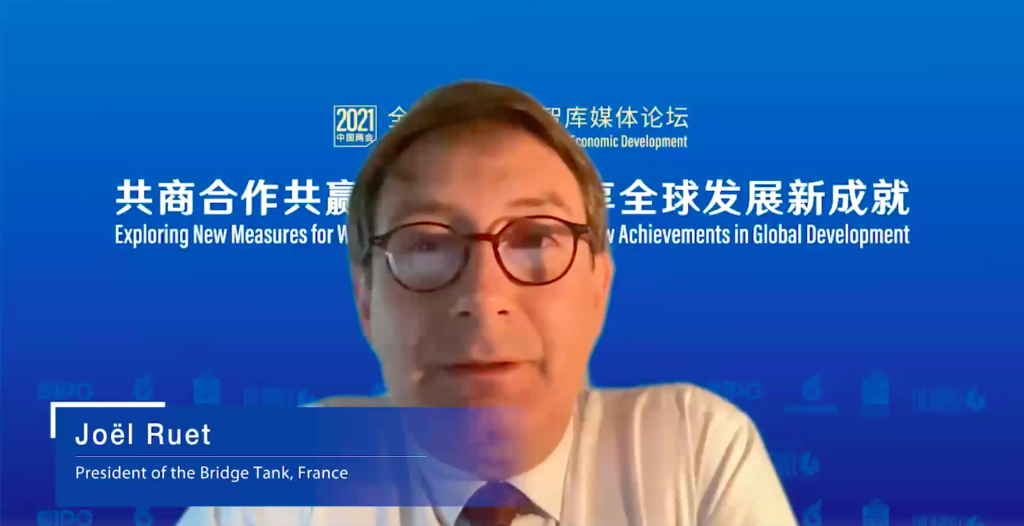
Joël Ruet, chairman of the Bridge Tank, said China must adopt more multilateral ways to clarify its position in the security issue and create a stable external environment. Speakers also agreed on the idea that China should play a role commensurate with its economic weight in global governance.
He referred to the pre-investment Agreement concluded between China and the EU, symbol of the opportunities that can emerge from a crisis, while warning of two priorities that should not be overlooked. Indeed, he targeted two areas where Sino-European cooperation is fundamental : the environment, where the ambitious words of the heads of state must be implemented through acts in the perspective of the COP26, and industrial cooperation, that the European and Chinese industries and businesses see as very promising.
The take of The Bridge Tank on the 2021 Two Sessions – “Dual circulation”, high-quality development, disappointing environmental objectives…
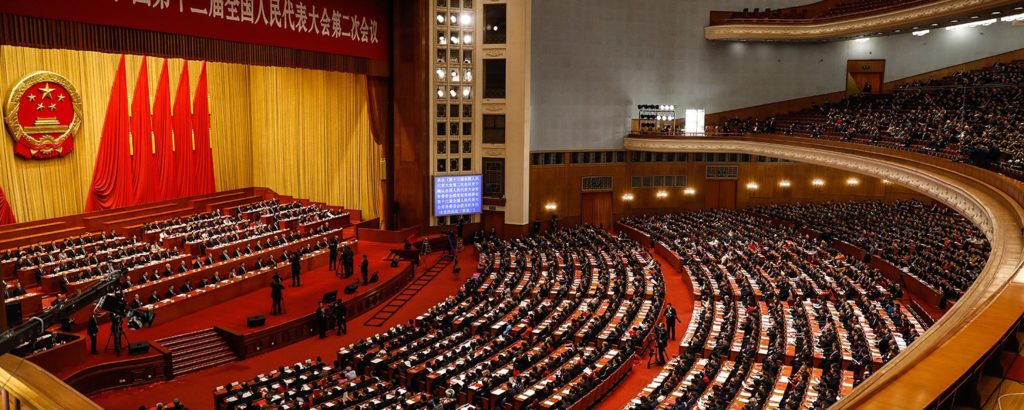
The Two Sessions designates the two annual plenary meetings of the National People’s Congress and the National Committee of the Chinese People’s Political Consultative Conference. After a year of pandemic which had postponed this meeting in May 2020, the Chinese leaders were keen this year to launch it on March 5, as if to embody the exemplary resilience of the country and the regained normality of the regime’s institutions. Plus, it is marked by the launch of the 14th Five-Year Plan 2021-2025 and the 100 years anniversary of the Chinese Communist Party.
Among the highlights of this event, Prime Minister Li Keqiang has set a growth target of 6% for 2021. This moderate figure shows that the priority will be less focused on an attractive GDP – the IMF is banking on an 8% recovery – than on stable growth in a context of uncertainty, and on three pillars: “reform, innovation, and high quality development”. Also, the budget allocated to research and development will increase by more than 7% per year over the next five years, to achieve breakthroughs in future technologies and allow China to gain strategic autonomy. Another priority of the regime is to upgrade the supply chain and to promote domestic consumption, especially in the automotive and household appliances sector.
In fact, both the Two Sessions and the 14th Five-Year Plan have as a common thread the development paradigm of “dual circulation”. This notion denotes a two-pronged development strategy that requires both internal and external market support to stimulate long-term consumption patterns. The domestic cycle is particularly emphasized while it is complemented by an international cycle, with foreign trade and investments abroad. This objective of betting on the huge Chinese domestic market is rooted in a desire to hedge against external shocks, in the context of rising diplomatic tensions and instability in the world economy.
Li Keqiang also stopped on the environmental issue: he called for the promotion of the greening of lifestyles and production. For example, one of the targets for 2021 is to achieve a rate of 70% for the use of clean energy for heating. The 14th Plan calls for China to reduce its energy consumption per unit of GDP by 13.5% and CO2 emissions by 18%. Yet the experts say that the objectives mentioned do not represent a real acceleration to achieve the carbon neutrality expected in 2060, for lack of concrete means. For example, the Double Assembly as well as the 14th Five-Year Plan introduced the idea of a “cap on CO2 emissions”, without actually setting one. While it is encouraging that a component dealing with climate change is for the first time adopted in a national-level plan, these initial environmental indications are therefore often perceived as ambiguous, even disappointing.
Minister Brice Lalonde and former UN deputy SG discusses ecological transition with the Bridge Tank
Brice Lalonde, who served as French Minister for the Environment, UN Under-Secretary-General for Climate, and Executive Coordinator at Rio+20, detailed the major issues at stake around the ecological transition around which powers must engage in a new cycle of technological cooperation.
Prospects for Sino-European cooperation
The former minister recalled that the electrification of our economies is key for the transition, requiring the deployment and improvement of techniques such as batteries, electrolysers, and more broadly raising the question of large-scale electricity production. Brice Lalonde believes that it is in this context that nuclear energy is most relevant and should be subject to technological exchange. He recalled, by way of example, the previous signing of a France-China agreement on the construction of a nuclear waste reprocessing plant.
The speaker also mentioned several times the prospect of future use of synthetic fuels, which consist in capturing and reusing the carbon dioxide initially emitted as energy. Brice Lalonde thus insisted on the distinction between present and future energy resources, illustrating his point with the example of water, which should become a strategic resource because of the technology of water electrolysis, allowing for the production of hydrogen.
Finally, the former minister addressed the research issues surrounding carbon fixation, in the form of artificial photosynthesis or through the sequestration of carbon dioxide (CO2), on which China and the EU must also work together.
Global governance and the future of international trade
On the other hand, and apart from Sino-European relations alone, Brice Lalonde more broadly presented the lack of international cooperation on ecological issues as the main shortcoming preventing the deployment of the ecological transition on a large scale. In his opinion, a paradigm shift is necessary consisting in the establishment of a minimum of global governance on these subjects, in contrast to the current configuration where sovereign climate programmes are simply added together, without any supranational dimension. He believes that we lack major international cooperation agreements, concerning gas for example, where the gas industry should have coordinated to finance the transition of coal-based economies to gas, which emits much less CO2. It therefore seems crucial to him to revitalise multilateralism, in order to carry out projects such as the establishment of a common carbon market on an international scale.
Finally, on the subject of international trade, the former Environment Minister was able to oppose a shared opinion that would like to present it as an outdated practice in a world seeking to achieve carbon neutrality. On the contrary, Brice Lalonde stated that trade can be ecological. “We absolutely need trade. Trade can be a very powerful ally for the environment,” he said. To do so, trade rules should no longer focus solely on finished products, but also on production standards (i.e. regulating production-related greenhouse gas emissions). From this point of view, the World Trade Organisation (WTO) still has its place in the world of tomorrow. The WTO has already accepted the primacy of environmental law in prior cases, when this law is enshrined in international agreements. In the future, states could thus theoretically take advantage of international ecological agreements imposing production standards in order to block imports from countries that violate them.
Lalonde was one of the keynote speakers of the Bridge Tank’s forum on the post-COVID-19 EU-China cooperation. He took part in a panel entitled « Green development or ecological civilisation? », which was moderated by Wen Cui-Pottier, former journalist of the Shangai Media Group. This forum took place in the Brongniart Palace in Paris on the 15th of October 2020.The other speakers of this session were Nicolas Imbert, Executive Director of Green Cross France & Territoires and two members of the Bridge Tank’s board : Guillaume Henry, President of the Association of the Ecological Analysis of Law, and Zhao Wei, researcher at Sun Yatsen’s University.
Minister Edmond Alphandéry exchanges with Bridge Tank experts about carbon pricing
Edmond Alphandéry, former French Minister of the Economy and Chairman of the Task Force on Carbon Pricing, gave a long explanation of his vision of the place and importance of carbon pricing in the ecological transition, and highlighted the decisiveness of this measure in order to achieve the objective of carbon neutrality, within the framework of the Paris agreement.
Carbon pricing: an essential tool for the ecological transition
Minister Alphandery began by reminding us of the scale of the challenge posed by global warming and the complexity of the issues at stake : given that we emit 40 billion tons of CO2 each year, he explained that if we reasonably assume that the price of a ton of CO2 should be set at around 100€ (according to the main evaluations), then a carbon pricing system would cost €4,000 billion each year, which amounts to Germany’s Gross National Product (GNP).
In this context, the former minister sees carbon pricing as central to the fight against global warming. His explanation is simple: when carbon has a price, all economic agents (households, companies, the State) are encouraged to reduce their emissions, or even to stop them or to find alternatives, in order to reduce their expenses.
The speaker specified that there are two solutions currently applicable and applied in order to put a price on carbon. The first is a carbon tax, which is simple and effective, but politically difficult to implement and whose adjustment is complex. The second is the introduction of a carbon market, where emission permits are issued according to the total volume of emissions desired. Permits are bought by market participants in proportion of what they emit, and their price is defined by supply and demand.
According to the chairman of the Task Force on Carbon Pricing, the tautological advantage of the carbon market is that it is a market, and that it therefore encourages innovation and the adoption of virtuous behaviour by agents in order to resell their permits (see the example of Tesla in the United States). However, it has the disadvantage of being characterised by a high volatility of carbon pricing.
It is this last reason that prompted the former minister to chair the Task Force on Carbon Pricing in order to promote among decision-makers a targeting of the price of carbon rather than volumes, as is currently the case. On the European carbon market, for example, he said that this would give stability to a carbon price that had collapsed during the subprime crisis, and also increase visibility.
Against the threat of climate change, China must adopt and extend carbon pricing
Edmond Alphandéry then spoke about the role of China, whose place he considered to be unavoidable regarding these issues. The country’s emissions are indeed higher than those of the United States and Europe combined. In this respect, he pointed out that the Chinese government is aware of the importance of the issues at stake and has already promoted a number of ecological transition measures. For instance, he stated that there is already a carbon pricing system in China, even if the price remains largely insufficient for now and is limited to the energy sector.
The former minister also stated that, in his view, there is a real Chinese will to carry out reforms. He particularly welcomed the initiatives and discussions that are taking place between various European and Chinese personalities, discussions in which he himself took part, in order to defend a convergence of the carbon prices of the two powers.
For Edmond Alphandéry, if such a reform was promoted, it would be no less than a revolution in the fight against global warming.
In conclusion, the panelist made a proposal to the Chinese authorities regarding their major strategic programme that is the BRI. As the government increases energy investments, especially aimed at thermal power plants, Edmond Alphandéry would consider it relevant and effective to introduce an internal carbon price in the companies and industries financed by Chinese funds. This would simulate a carbon price and thus encourage decarbonisation, while sending a strong message to the international community by underlining the importance that China attaches to reducing greenhouse gas emissions.
Edmond Alphandéry said he would be ready to support such an initiative immediately.
Alphandery was one of the main speakers at the Bridge Tank forum on EU-China cooperation post-Covid-19.
He
participated in a panel moderated by Philippe Coste, former French
ambassador, on greening investment in the European Union (EU) and China,
and on the challenges of the Belt & Road Initiative (BRI). The
forum took place at the Palais Brongniart in Paris on 15 October 2020. Other speakers in this session were Pierre-Noël Giraud, Professor of Economics at the Ecole des Mines de Paris, Djellil Bouzidi, member of the Haute Autorité de la Statistique and of the Bridge Tank’s Board, and Song Luzheng from Fudan University.
Exchange on the role of culture in international relations between Irina Bokova, former Director-General of UNESCO and the experts of the Bridge Tank
The first woman elected as Director-General of UNESCO, Minister of Foreign Affairs in Bulgaria in 1996, and former Bulgarian ambassador to France, Irina BOKOVA is a passionate politician, who shares the values of openness and dialogue with the Bridge Tank. During her career, she became involved in international efforts in favor of equality between women and men, education for all and access to culture. Among her many fields of action, scientific cooperation for sustainable development is particularly close to her heart. She has also pleaded for Bulgaria’s membership of the EU and NATO, and continues to campaign for European integration by promoting the values of diversity and human rights.
Irina Bokova, Board member of the Bridge Tank and co-organizer of the EU-China post-covid Cooperation Forum
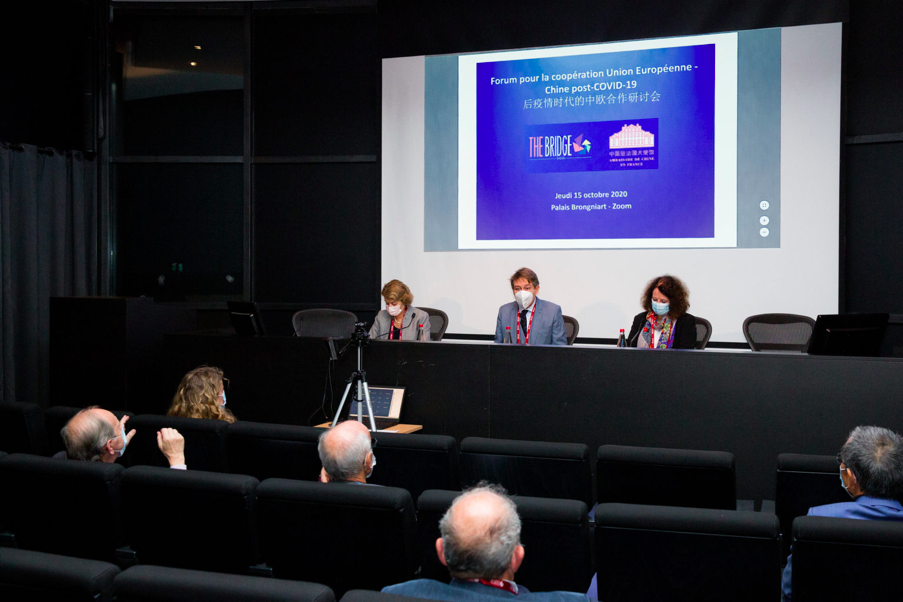
From the opening session, the former Director-General of UNESCO recalled that Sino-European cooperation should take into account a human and cultural aspect, like said in the Sustainable Development Goals of the 2030 Agenda, which will allow a constructive link in the economic, political, security and environmental fields.
She gave a more “UN” dimension to the debates, to reflect on multilateralism, globalism and the climate, in which China and the EU are key actors. Dialogue between these two powers is therefore essential to build a more inclusive, sustainable and multilateral post-covid world and reform the multilateral system, as she said in the Forum on January 21. Irina Bokova insisted on the growing role of China in this project : she recalled President Xi Jinping’s carbon neutrality commitments by 2060, the central place of China in the recovery of global activity, as well as Beijing’s role in integrating culture and science into the United Nations 2030 Agenda.
What post-covid human exchanges?
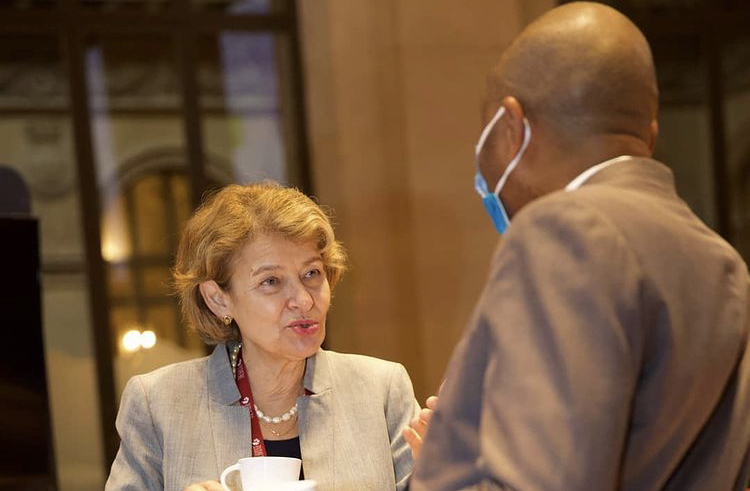
Irina Bokova federated the debates around the question of human exchanges, be they cultural, educational or scientific in the development of a vision of the future. This essential theme must be part of the wider debate on geopolitical issues and ecological transitions. The former Minister of Foreign Affairs affirmed that there is a convergence in the thoughts on this aspect of cooperation between the EU and China, which are two great cultural powers. It is therefore an essential aspect of the current debate on the refocusing of Sino-European relations, all the more crucial as China has invested heavily in the areas of culture and identity in recent years.
Indeed, Xi Jinping has revived a major UNESCO project, the Silk Road, by giving real importance to heritage, cultural and identity issues. The new Silk Roads, beyond trade flows, must play a role in building intercultural bridges. In addition, China now ranks first on the UNESCO World Heritage List. This sector is an integral part of its economy, showing the world that culture and its industries can play a significant role in the growth and trade of a country.
The digitalization of cultural exchanges
Irina Bokova dwelled on the place and dangers of digital in the promotion of culture. With its ability to create bridges between societies, it has enormous potential, to such an extent that the United Nations will soon adopt measures that makes access to digital a human right. However, she warned of the worrying risks associated with technology : it tends to standardize and erase diversity and threatens to fragment societies by creating isolation and alienation in communities.
On the condition therefore of being part of an ethical approach at the service of humanity, technologies remain a space of extraordinary creativity and an unparalleled connection platform, making it possible to link museums to the digital world by arousing curiosity about cultural projects. The former director of UNESCO concluded that a nation never awakens without curiosity for its culture, something that China understood well when it completed in seven years the construction of 5 000 museums, and for the culture of the others, pillar of all cooperation and bulwark against intolerance.
Irina Bokova is a Bridge Tank’s Board Member, which regularly shares her thoughts and expertise. She notably co-organized and opened the post-Covid EU-China Cooperation Forum alongside Joël Ruet, President of the Bridge Tank and Sylvie Bermann, French Ambassador to China.
On October 15, 2020, this “hybrid” Forum brought together four former ministers, five former ambassadors and around thirty experts at the Palais Brongiart in Paris, as well as around a hundred registrants on three continents, to share nourished, informed and precise on economic, industrial, social and cultural questions on the EU-China relationship.
EU-China Online Cooperation Forum 2021
The Bridge Tank hosted Lu Shaye, Chinese Ambassador to France, Jean-Pierre Raffarin, former French Prime Minister, Irina Bokova, former Director General of UNESCO, François Loos, former French Minister for Industry and Minister Delegate for Foreign Trade, Sylvie Bermann, former French Ambassador to China and to the United Kingdom, Stéphane Gompertz, former French Foreign Affairs Africa Director, Fatima Hadj, Sponsor of the Sustainable Development Goals of the Bill and Melinda Gates Foundation, and François Quentin, former President of the Huawei France Board to the EU-China online cooperation Forum on the 21st of January 2021. The Forum was moderated by our chairman Joël Ruet.
Lu Shaye described the new context of relations between France and China, notably the important impact of COVID-19 and the change of American presidency. He highlighted that cooperation between Europe and China needs to be reinforced, particularly through mutual respect and strengthened political communication and coordination.
Jean-Pierre Raffarin highlighted the lack of multilateral response to the pandemic, with a lack of cooperation regarding testing, vaccines and within the WHO. Multilateralism must therefore be renewed while reinforcing European independence, focusing on the political and economic meeting points between the EU and China, as well as on international cooperation. Other countries, notably African ones, must be included in this redefined cooperation.
Irina Bokova argued that the EU and China could cooperate through the Agenda 2030’s goals, conservation of biodiversity and fight against climate change, as well as for African development.
François Loos highlighted that industry should be a more central focus of this agreement that can still evolve ahead of its ratification while Sylvie Bermann clarified that recent negotiations did integrate European demands; Stephane Gompertz suggested the process ahead could be the opportunity to foster EU china investment coordination in Africa; Fatima Hadj and Francois Quentin said the discussion is only starting on non-financial risks ESG taxonomy or on mutual understanding about contracting traditions in the EU and China.

